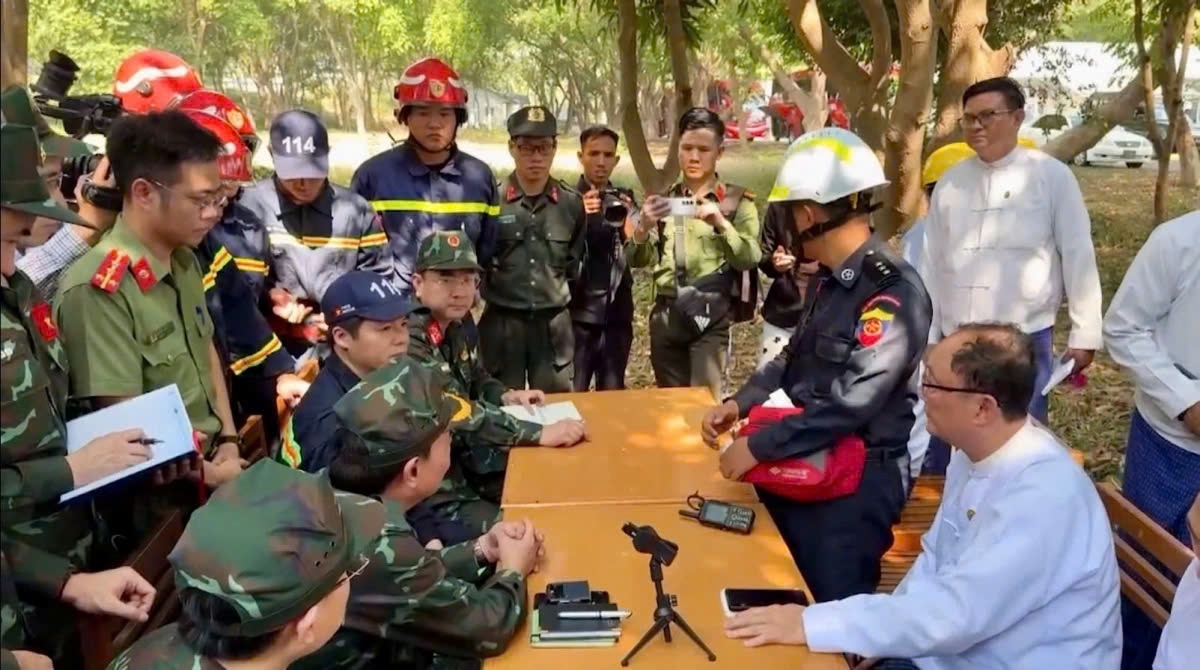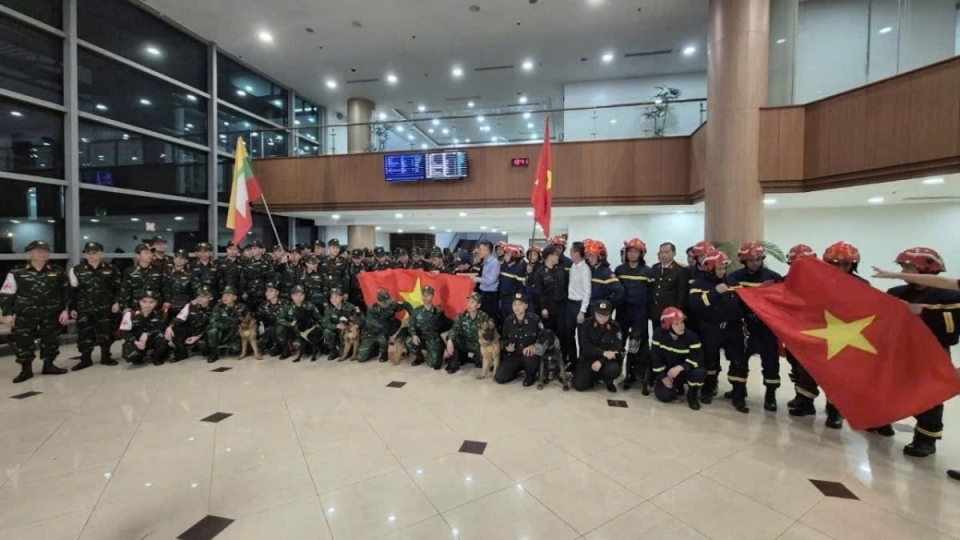Vietnamese soldiers use ground-penetrating radar to locate Myanmar quake victims
VOV.VN - Vietnamese rescue workers, after reaching Naypyidaw on March 31 morning, deployed ground-penetrating radars and specialized image and sound detection equipment to locate victims of the powerful 7.7 magnitude earthquake.

A representative of the team stated that upon arrival in Naypyidaw, the head of the Vietnamese rescue mission held a quick discussion with officials from Myanmar’s Fire Services Department under the Ministry of Home Affairs to coordinate and finalize rescue and relief strategies at the disaster site.
Upon arriving at a collapsed three-story building spanning approximately 200 square meters, Vietnamese rescue workers immediately began assessing the number of people trapped. They deployed modern equipment, including ground-penetrating radars and sound detection equipment to locate victims in rubble.
The Vietnamese military rescue team was divided into three units, working alongside the Ministry of Public Security’s rescue team to conduct searches from three different directions as efficiently as possible. Ten military and police personnel were assigned to conduct field reconnaissance.
A team of 30 military medical officers was prepared to set up a mobile treatment unit to provide emergency medical care on-site, including both internal medicine and surgical procedures, for victims and affected residents in the disaster-stricken area.
Over the next ten days, the Vietnamese rescue team will continue search-and-rescue operations, provide medical assistance, and participate in other relief activities as required by Myanmar, based on their expertise and capabilities.
A powerful 7.7-magnitude earthquake struck central Myanmar on March 28, followed by a 6.7-magnitude aftershock just minutes later. The quake destroyed numerous buildings, collapsed bridges, and damaged roads across the country. Local authorities reported that more than 1,700 people have died, 3,400 injured, and 300 missing after the disaster, and the numbers could rise further.





